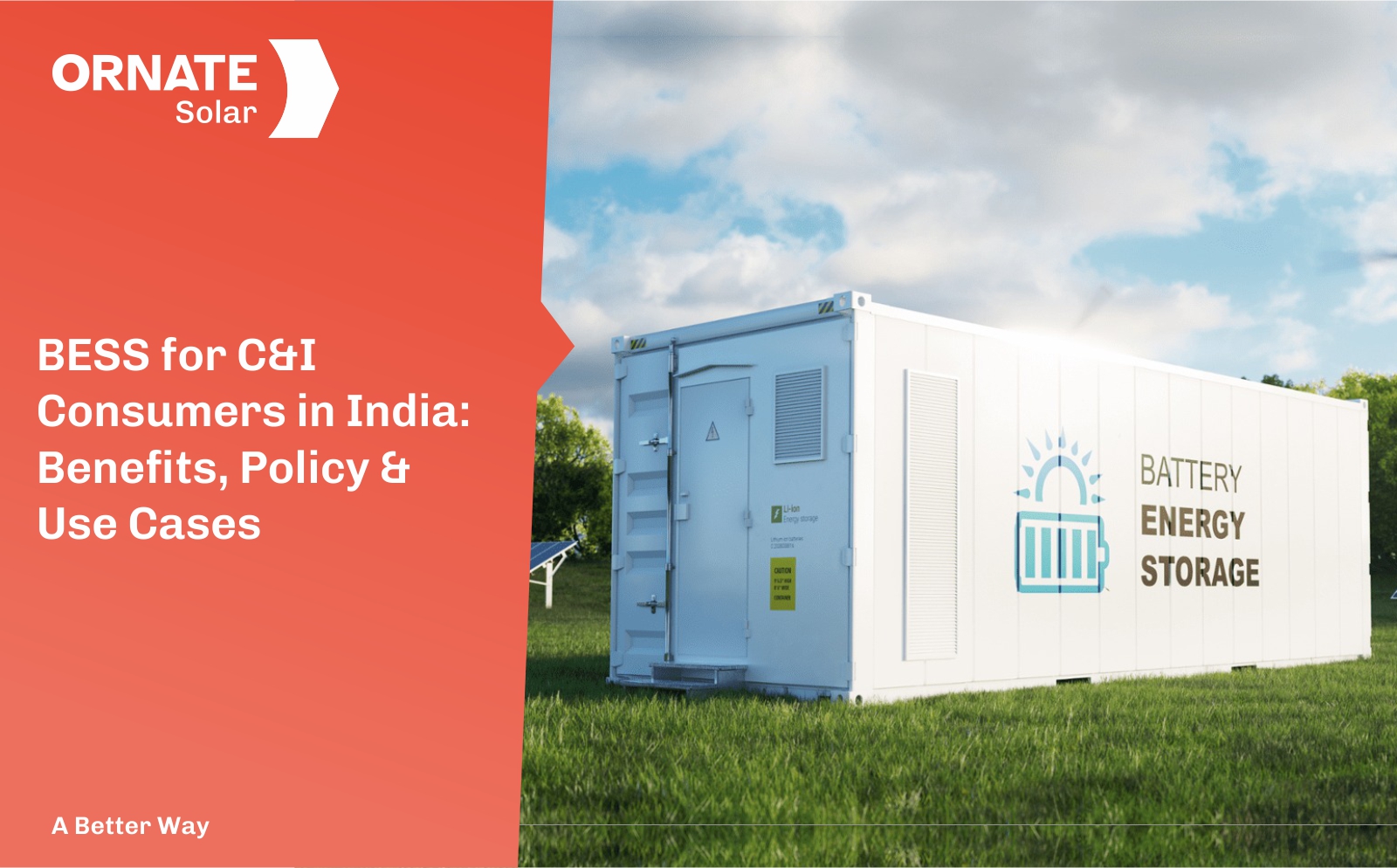

Did you know the C&I segment accounts for about 40–45% of India’s energy demand?
To meet this high-power requirement and reduce electricity costs, businesses are actively switching to cheaper and cleaner resources like solar energy.
But there’s a problem.
Solar is an incredibly useful resource if your location receives ample sunlight and most operations are conducted during the daytime. However, if your power demand peaks during non-solar hours, you’ll still have to depend on grid electricity, which can be unreliable in certain regions.
In this scenario, a consumer can either opt for open-access solutions or install an energy storage system like BESS.
In this blog, we’ll discuss everything you need to know about BESS—its benefits, use cases, policies, and more.
What is BESS and How Does It Work?
Battery Energy Storage Systems (BESS) are devices that store renewable energy for later use. They can be charged using DC power from solar panels and discharged during peak hours or at night.
Key components of a BESS include:
- Battery Management System (BMS): Monitors battery performance.
- Energy Management System (EMS): Controls energy flow and communicates with other devices.
The battery must be integrated with a hybrid solar inverter, which converts DC power into usable AC (Alternating Current). You can also manage energy flow through your inverter and choose whether solar panels first charge the battery or power operations directly.
Why BESS Makes Sense for C&I Consumers in India
- Intermittency of Solar Energy:- Solar energy output depends on time, weather, and geography. If your peak load occurs at night or in cloudy regions, you’ll still need grid support.
- High Time-of-Day Tariffs:- Commercial and Industrial (C&I) consumers are subject to different time-of-day (ToD) tariffs, with peak hours typically defined as 6 PM to 10 PM. Since these are non-solar hours, with high electricity rates, businesses can’t fully maximize solar savings.
- Unreliable Grid Power:- Frequent power outages affect operations. Grid-tied solar systems don’t work without a grid reference. Diesel generators are useful in such situations, but are costly and polluting.
Benefits of Battery Energy Storage System BESS
- Uninterrupted Solar Energy Supply:- BESS solves solar intermittency and can integrate with on-site solar solutions with hybrid inverters. Innovative solutions like solar InRoof and solar carports are also compatible with BESS. Stored power improves the reliability of solar installations and increases clean energy usage.
- Higher Cost Savings:- A battery can be discharged during nighttime or peak demand hours, reducing dependence on expensive grid electricity. This leads to greater monthly savings. This strategy is known as peak shaving—where stored solar energy is used to avoid drawing power from the grid when rates are higher.
- Optimized Solar ROI:- On holidays or low-demand days, surplus solar power is either wasted or exported to the grid at specified rates. In many states, the power exported is compensated at a lower rate, while the power consumed from the grid is charged at a higher tariff. With a BESS, the surplus solar power can instead be stored and used later. This maximizes solar energy utilization and improves overall solar ROI.
- Backup During Outages:- In areas with unstable grid power and frequent outages, battery energy storage solutions provide instant backup. When charged with solar power, the battery can also replace or reduce the need for diesel generators, cutting fuel costs and emissions.
Application of BESS in the C&I Segment
Battery Storage Systems are handy for businesses with sanctioned loads lower than 1 MW. Here’s how BESS can be useful to different types of companies in the Commercial and Industrial (C&I) consumers segment.
- Commercial Buildings and Factories
- Helps with peak shaving and reducing energy costs
- Acts as backup during power cuts and prevents production losses
- Can be utilized for EV charging
- Warehouses & Cold Storage
- Ensures temperature-sensitive goods remain protected
- Maintains operation during night time and cloudy days
- Hospitals and Data Centers
- Ensures uninterrupted operation of critical machinery and systems
- Reduces reliance on diesel generator
- Energy Intensive Activities like mining/construction
- Reduces reliance on fossil fuels
- Ensures renewable obligations are met
- Brings down energy expenses
Energy Storage in India
The government has started introducing policies and incentives to boost energy storage adoption in the nation. This includes:
- Inclusion of ESS under amended electricity rules
- Introduction of Energy Storage Obligation for selected entities.
- Waiver of Inter-State Transmission System Charges for BESS projects commissioned before 30th June 2025.
- Mandate for consumers using DG to shift to cleaner technologies under given timelines.
In 2023, the Indian government further introduced a National Framework on ESS, which included:
- Introduction of Viability Gap Funding (VGF) up to 40% of capital costs for early projects
- Connection of Energy Storage Systems to the nearest Interstate Transmission to be granted on a priority basis.
- New RE projects with capacities over 5 MW will likely be mandated to install ESS for at least 5% of their total capacity.
- Introduction of incentives for indigenous manufacturing of storage systems.
Apart from this, the Ministry of Power also mandates that all future solar tenders will have to include co-located ESS of at least 10% of project capacity
About Ornate Solar
Ornate Solar is a leading solar company with 10 years of experience in the industry and a mission to reimagine solar installation worldwide.
By partnering with best-in-class solar brands and developing high-quality solutions (solar panels, solar inverters, accessories, and InRoof), we deliver solutions that are modern, reliable, and effective.
Ornate Solar is also a trusted BESS manufacturer in India. We have developed Unity ESS, an advanced energy storage solution to provide reliable power and energy independence.
If you are looking for high-quality solar solutions, reach out to us at 1800 2026 252 to discuss your options.


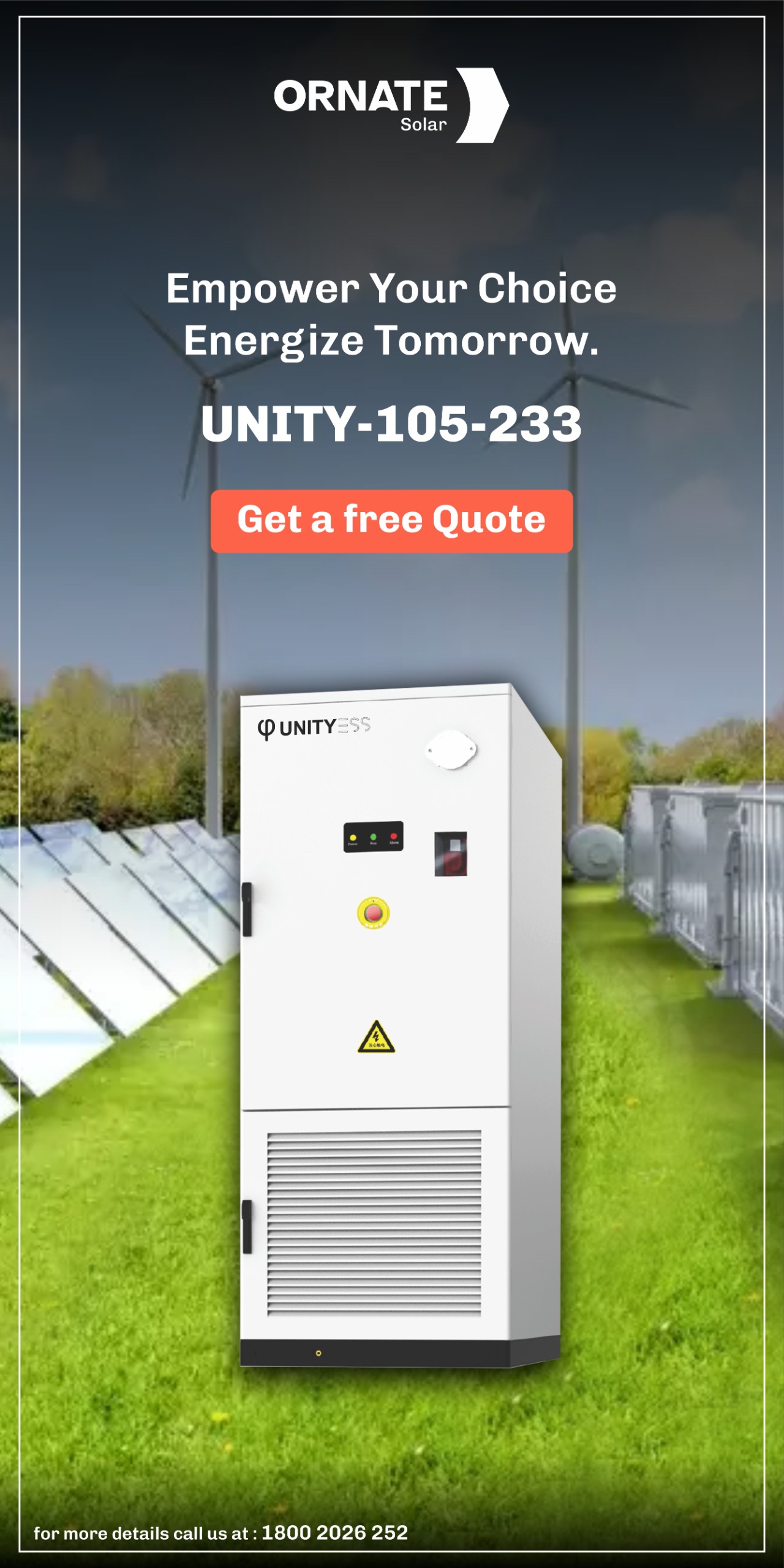


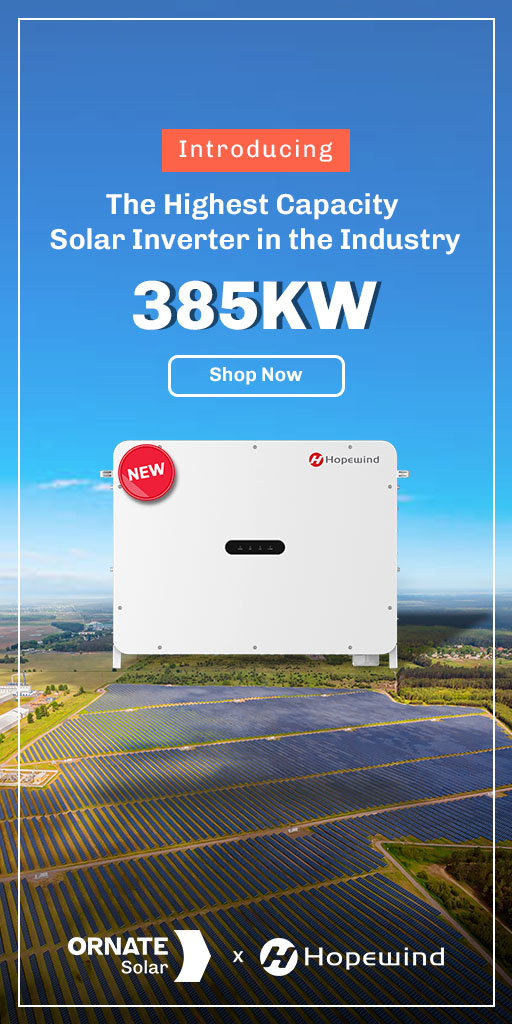
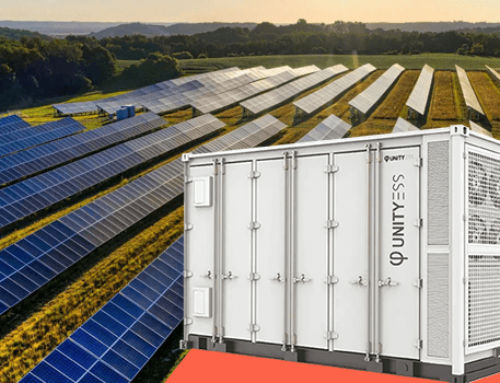
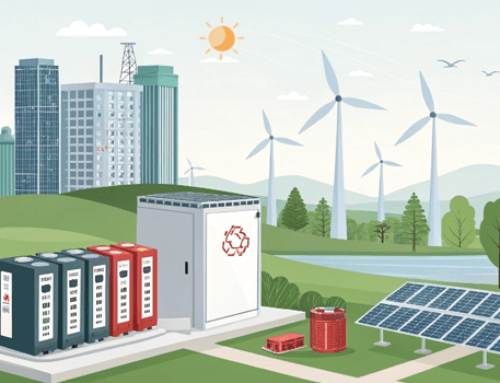


Well‑written and insightful! This blog clearly outlines the benefits, policies, and practical use cases of BESS for CI consumers in India informative and engaging.